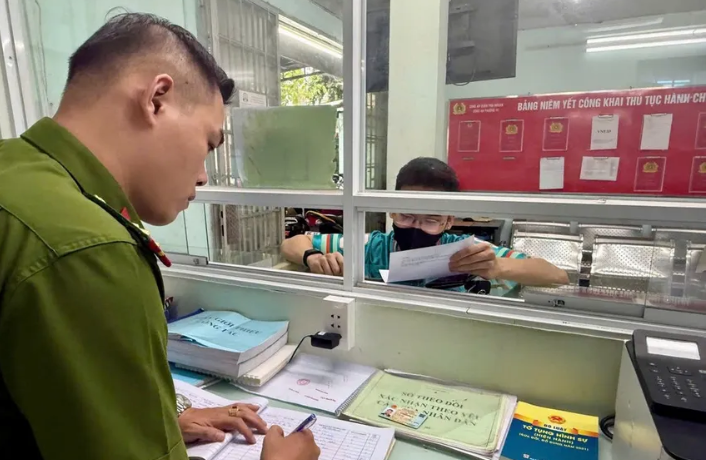Amendments to Residence Regulations to Align with Administrative Unit Reorganization
The amendments aim to ensure consistency with the ongoing reorganization of administrative units and streamlining of the state apparatus, especially given that district-level government will no longer exist after March 2025. The draft also seeks to promote decentralization, simplify administrative procedures, reduce paperwork for citizens, and fully leverage the national databases on population and identification.

Key highlights of the draft amendments:
-
Security and Order: Clarifies and supplements the list of conditional business lines such as cosmetic surgery services, karaoke, dance halls, and military equipment trading. The authority to grant security and order certificates will be decentralized to local police.
-
Seal Management: Shifts the authority to register, issue, and re-issue seal registration certificates to provincial-level police; adds detailed provisions on embossed, miniature, and wax seals; and allows online applications via the national public service portal. Certain agencies and organizations will have their right to use seals adjusted to fit the two-tier local government model.
-
Fireworks: Tightens regulations on research, production, trading, and import-export of fireworks; decentralizes the authority to permit firework displays; and introduces digital management requirements to improve transparency and prevent security risks.
-
Identification Law: Expands the scope of population data management, provides for the issuance of identification numbers for citizens born abroad, adjusts procedures for integrating information into ID cards, and introduces rules for revoking cards or certificates issued in error.
-
Residence Law: Clarifies rules on registering vehicles used as residences; adds documentation requirements for proving disability or loss of working capacity; simplifies initial residence registration for minors; and standardizes administrative forms by removing outdated terminology following the administrative reorganization.
For example, the regular parking location of a vehicle used as a residence will now be registered directly with the commune-level People’s Committee (instead of the district level as before). If the owner already has a lease contract for parking space or written approval from the managing authority, registration will not be required.
The draft also revises proof-of-disability rules: instead of requiring certification from district-level medical facilities or higher, confirmation can now be issued by regional medical facilities or commune-level People’s Committees.
Regarding minors, when registering permanent or temporary residence for the first time at the address of their parents or legal guardians, authorities will no longer need to verify the legality of the dwelling.
For consistency, the draft replaces terms in forms and legal provisions, such as removing “district-level People’s Committee where no commune-level administrative unit exists” and replacing it with “commune-level People’s Committee.” It also eliminates the phrase “directly under the Central Government” in certain regulations.
These proposed changes are designed to align legal regulations with the restructured administrative unit model while remaining consistent with the Law on the People’s Public Security.
Ý kiến bạn đọc
Những tin mới hơn
Những tin cũ hơn
Luật sư Trần Đình Phúc: Người thầm lặng kiến tạo nên những giá trị bền vững tại Luật Nguyễn
Trong hành trình hơn 25 năm phát triển của Luật Nguyễn, bên cạnh những bước tiến mạnh mẽ và thành tựu đáng tự hào, không thể không nhắc đến những con người đã đặt nền móng và gắn bó trọn vẹn với sự nghiệp chung. Luật sư Trần Đình Phúc là một trong số ấy. 1. Người đồng hành từ những ngày đầu...
-
 Sửa đổi quy định cư trú để phù hợp sắp xếp đơn vị hành chính
Sửa đổi quy định cư trú để phù hợp sắp xếp đơn vị hành chính
-
 Đề xuất đổi căn cước trực tuyến khi thay đổi thông tin do sắp xếp đơn vị hành chính
Đề xuất đổi căn cước trực tuyến khi thay đổi thông tin do sắp xếp đơn vị hành chính
-
 Proposal for Online ID Renewal After Administrative Unit Changes
Proposal for Online ID Renewal After Administrative Unit Changes
-
 Legal Action: The Right Path for Businesses Facing Online Defamation
Legal Action: The Right Path for Businesses Facing Online Defamation
-
 Bị bôi nhọ trên mạng, doanh nghiệp nên chọn pháp lý
Bị bôi nhọ trên mạng, doanh nghiệp nên chọn pháp lý
- Đang truy cập53
- Hôm nay15,273
- Tháng hiện tại564,696
- Tổng lượt truy cập1,333,359
-
 Cập nhật địa chỉ trụ sở Công an cấp xã tại TPHCM sau sáp nhập
Cập nhật địa chỉ trụ sở Công an cấp xã tại TPHCM sau sáp nhập
-
 Từ ngày 1.7: Cách ghi địa chỉ trên hóa đơn điện tử thay đổi
Từ ngày 1.7: Cách ghi địa chỉ trên hóa đơn điện tử thay đổi
-
 Địa chỉ 19 Tòa án nhân dân (TAND) khu vực TP.HCM sau sáp nhập
Địa chỉ 19 Tòa án nhân dân (TAND) khu vực TP.HCM sau sáp nhập
-
 Hóa đơn GTGT xuất cho khách cá nhân có bắt buộc ghi CCCD?
Hóa đơn GTGT xuất cho khách cá nhân có bắt buộc ghi CCCD?
-
 Thông tư 40/2021 :Quy định về nghĩa vụ thuế đối với hộ kinh doanh
Thông tư 40/2021 :Quy định về nghĩa vụ thuế đối với hộ kinh doanh








